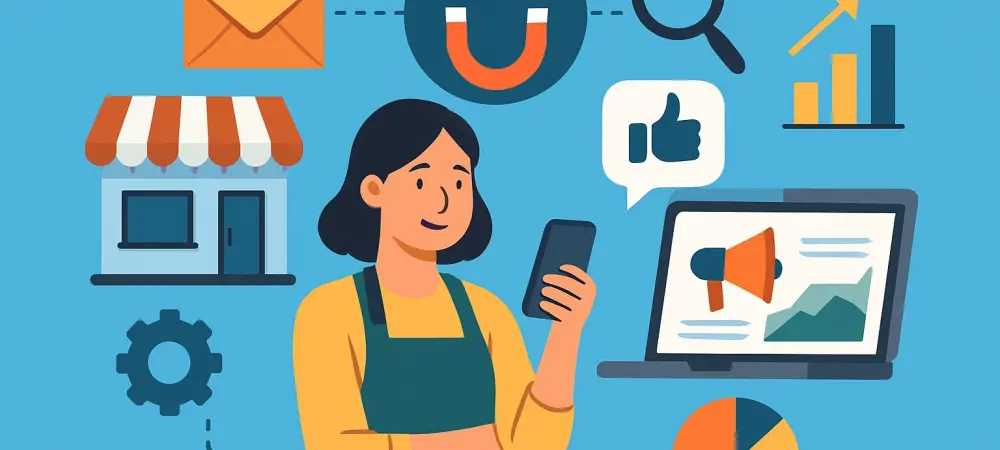I’m thrilled to sit down with Aisha Amaira, a MarTech expert whose deep knowledge of marketing technology has helped countless businesses harness innovation for better customer insights. With her extensive background in CRM and customer data platforms, Aisha has a unique perspective on how small and medium-sized businesses (SMBs) can navigate the complex world of marketing challenges. In our conversation, we dive into the declining confidence among SMBs in their marketing strategies, the hurdles they face with measurement and new tools like AI, and how B2B marketers can step in as trusted partners. We also explore the importance of tailored solutions and the role of various marketing channels in today’s landscape.
How would you describe the current confidence level among small businesses regarding their marketing efforts, and what factors are contributing to this sentiment?
Right now, confidence among SMBs is pretty shaky. Data shows that only about 18% feel ‘very confident’ in their marketing strategies for 2025, which is a steep 27% drop from the previous year. A big part of this is the struggle to measure results—they’re often guessing which channels are working or what’s driving outcomes. Add to that the pressure to adopt new technologies like AI, which promise better insights but demand more investment, and it’s no surprise they’re feeling uncertain. Rising costs are also squeezing their budgets, making it harder to justify spending on marketing when margins are tight.
What are some of the most significant challenges SMBs face when trying to build effective marketing strategies?
SMBs are up against a lot. One of the biggest issues is measuring performance—they often can’t tell which efforts are paying off or where their customers are coming from. Attribution is a real headache. Then there’s the push to adopt AI tools, which can feel overwhelming because they require not just money but also time to learn and integrate. On top of that, with costs rising across the board, many SMBs are stuck between needing to invest in marketing and simply not having the funds to do so. It’s a tough balancing act, especially when resources are already stretched thin.
In what ways can B2B marketers become valuable partners to SMBs in overcoming these obstacles?
B2B marketers have a huge opportunity to step in as trusted allies. They can offer tools that simplify tracking and reporting, making it easier for SMBs to see what’s working without needing a data science degree. Turning complex data into straightforward, actionable insights is key—think dashboards or reports that highlight exactly what to do next. Also, education plays a big role. By providing resources, webinars, or even simple guides, B2B marketers can help SMBs understand their options and feel more in control of their marketing decisions.
How can B2B marketers tailor their offerings to better meet the specific needs of SMBs, especially in terms of saving time and money?
It’s all about positioning solutions as practical and accessible. SMBs need tools that save time and don’t break the bank, so emphasizing cost-effectiveness and efficiency is crucial. Features like automation and streamlined workflows can be game-changers for businesses with limited staff, letting them focus on running their operations instead of getting bogged down in marketing tasks. Flexible pricing models also help—offering plans that scale with their growth or budget constraints makes it easier for SMBs to justify the investment, especially in a tough economy.
Why do you think SMBs are experimenting with so many different marketing channels, and what challenges does this create for them?
SMBs are casting a wide net with channels like email, video, and AI because they’re trying to find what resonates with their audience and drives results. Email, for instance, is seen as the most effective by a good chunk of them—44% according to recent data—but they still struggle with things like low open rates or crafting compelling messages. Managing multiple channels is a challenge in itself, especially with limited time and resources. Many also worry about maintaining their brand voice or handling privacy concerns, particularly with AI tools. It’s a lot to juggle when you’re already wearing multiple hats.
What role do you see email playing in SMB marketing strategies, and how can B2B marketers help address the pain points associated with it?
Email remains a cornerstone for SMBs because it’s direct, personal, and often delivers solid results—44% of them rate it as their top tool. But challenges like low engagement or the time it takes to build effective campaigns hold them back. B2B marketers can help by offering email platforms with easy segmentation, templates for personalization, and A/B testing features to fine-tune what works. Simplifying the process and providing support for crafting messages can make a big difference for SMBs who don’t have dedicated marketing teams.
Looking ahead, what is your forecast for the role of technology in SMB marketing strategies over the next few years?
I think technology, especially AI and automation, will become even more central to SMB marketing, but only if it’s made accessible and intuitive. SMBs will increasingly rely on tools that handle repetitive tasks and deliver clear insights, freeing them up to focus on strategy and customer relationships. The key will be affordability and ease of use—technology providers need to bridge the gap between innovation and practicality. I also see a growing emphasis on data privacy and security as SMBs become more aware of those risks. If B2B marketers can address these needs, they’ll build lasting trust and help SMBs thrive in a competitive landscape.

